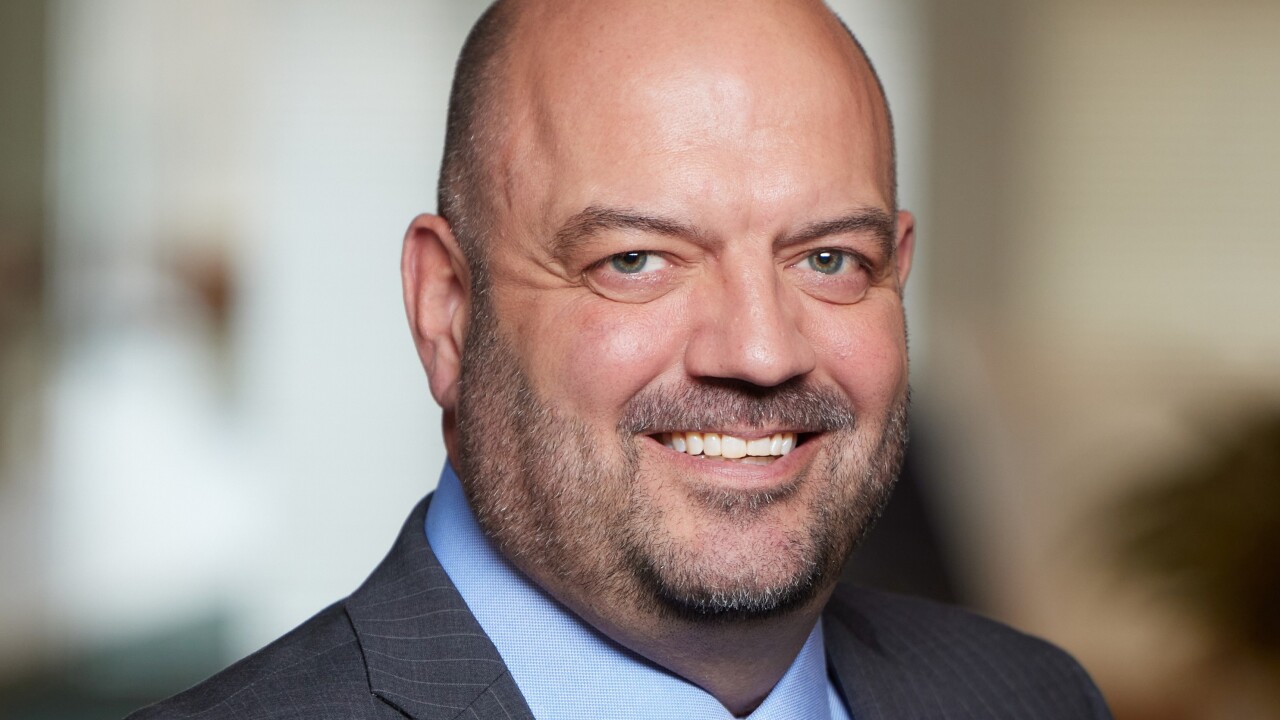Mr. Cooper reported a surge in earnings fueled by intensified net gains
Marshall's exit is starting on a high note. The company's total net income roughly doubled during the quarter, rising to $275 million from $142 million in
The test for Mr. Cooper as Marshall departs will be whether it'll be able to maintain the fiscal and operational discipline he helped contribute to the company as chief financial officer and later president, drawn on his experience that included managing banks in the Great Recession.
"The scale we're adding, the efficiencies we're generating, those are going to continue," Marshall said, in response to an analyst question about what the trajectory might look like going forward as the company's portfolio has shifted more toward servicing rights it owns versus what it handles for others.
The value of owned servicing can be volatile and difficult to forecast.
The company's results included a negative $61 million mark-to-market charge on mortgage servicing rights but it was offset by a $67 million gain from the collapse of a 2009 securitization undergoing a cleanup, analysts at Keefe, Bruyette & Wood noted in a report.
That collapse involved the sale of reverse mortgage servicing, according to a separate report by analysts at BTIG.
Servicing overall was profitable as a line item.
Owned servicing currently comprises 56% of Mr. Cooper's $937 billion portfolio, which CEO Jay Bray said makes the company the industry's largest player and gives it competitive economies of scale.
Recent growth in the portfolio has more than offset the loss of a subservicing client, according to Marshall.
Overall from servicing, Mr. Cooper generated $234 million in pretax earnings during the quarter, excluding the securitization trust collapse, with another $29 million coming from originations. Higher rates are generally to servicing's advantage, lower ones benefit origination.
Marshall told analysts he expects future earnings will be relatively steady. However Mr. Cooper is unlikely to have another surge as in the third quarter, which partly stems from some one-time items.
"There's no going to be a giant step up, you should just expect consistent improvement in profitability throughout the year," he said of 2024.
Kurt Johnson, who became CFO after Marshall's promotion and appears likely to be more of a key player as the president departs, has said he foresees gains in owned servicing as bank interest in shedding grows amid
Those capital rules are still going through a comment period and aren't set to be phased in until after 2024 but
"We're starting to see banks bringing MSR pools to market as they prepare for
In an update on an initiative mentioned previously, executives noted that Mr. Cooper has moved ahead with plans to establish a new investment vehicle for mortgage servicing rights.
"We've already kicked off the capital raising process for our first MSR fund," Bray said.
The company will be incurring some additional expenses related to the fund and
"With the acquisition of Roosevelt, you should expect corporate expenses to be roughly $2 million higher per quarter, which reflects the cost of our asset management strategy, and the team which will be overseeing the MSR fund," said Johnson. "That expense will be more than offset by increased revenue once the fund is raised and starts acquiring MSRs."
Mr. Cooper also recorded $192 million in hedge losses during the quarter. At a hedge ratio of 76%, this was acceptable given the company's 75% target, according to Johnson.
The company is managing the risk of potential market shifts that could affect traditional servicing gains by continuing to invest in countercyclical business lines that aren't currently large profit centers like originations, distressed servicing and Xome's
An increase in delinquencies seen in other consumer finance sectors like auto loans and credit cards
"We anticipate it to tick up slightly," he said. "It probably won't be a material adverse environment for us in 2024."
Also helping to manage distress are new modification options the Federal Housing Administration added earlier this year, Johnson said. The FHA primarily serves first-time home buyers with lower incomes and less of a financial buffer against hardships.
"We were able, as a result of that, to take the delinquencies down from FHA and also grow part of our ancillary income … as well, as FHA pays a success fee for those modifications," he said.
FHA mortgages typically have had higher delinquencies than mortgages partially guaranteed by the Department of Veteran Affairs or backed by the U.S. Department of Agriculture but recently late payments on loans in the first category dipped below those in the other two at Mr. Cooper.
The company's FHA delinquency rate during the quarter was 2.2%, as compared to 2.3% for USDA/VA loans.


